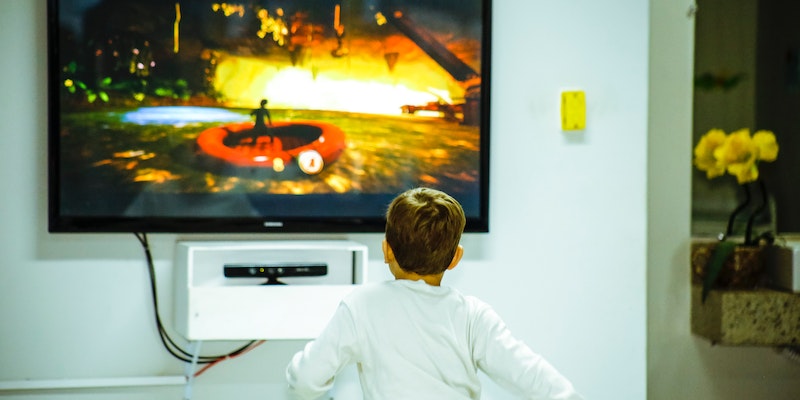Many children enjoy watching television. Could excessive screen time during childhood lead to health outcomes in adulthood? Recent research suggests that there might be a connection between kids' TV viewing habits and potential health issues. This book aims to shed light on the consequences of this lifestyle choice. To provide readers with an understanding of this captivating topic, we will delve into its impact on aspects encompassing both physical and mental well-being. Stay tuned as we uncover information in the sections.
Childhood TV Watching Defined
Definition
Childhood TV watching refers to the time spent by children, typically aged between 2 and 18 years, viewing television programs. This could include cartoons, educational shows, or any other content accessible through TV.
Origins/Background
The phenomenon's genesis roughly overlaps with the introduction of television in the middle of the twentieth century. At first, it was celebrated as a game and a groundbreaking method of instruction. However, as time went on, worries emerged about the possible adverse effects on a child's growth and future way of life.
Statistics
Some adult health problems have been linked to the amount of time a youngster spends in front of the TV, according to recent research. Adults who were heavy TV viewers as children are at increased risk for obesity and cardiovascular illness, for example.
Affected Demographics
While all children are susceptible to the effects of excessive TV watching, those in environments with unrestricted access to television are at a higher risk. Moreover, children in urban settings are more likely to engage in prolonged TV watching compared to their counterparts in rural areas, owing to the higher accessibility to television sets.
Characteristics of Childhood TV Watching and Its Impact on Adult Health

Primary Features
When children watch television, they are often seated for lengthy periods of time, which may lead to the development of a sedentary lifestyle at a young age. The television programs and ads that a kid watches may also have an influence on the preferences and routines that the child develops, including the food choices that the child makes as an adult.
Causes/Reasons
The reasons behind excessive TV watching in childhood can vary. It might be due to parental guidance, a lack of other recreational activities, or simply a personal preference for TV shows and cartoons. Moreover, the easy accessibility of TVs and the allure of vibrant shows and cartoons can be irresistible to many children.
Effects/Implications
Growing up with a habit of watching a lot of TV can have effects on adult health. Firstly, it can result in a lifestyle that has been linked to several health problems, such as obesity and cardiovascular diseases. Secondly, it may influence our eating habits by promoting a preference for snacks that are often advertised on television. Lastly, excessive screen time can also impact our well-being, potentially leading to issues like anxiety and depression in life. Understanding the impact of this lifestyle is important for developing habits and reducing health risks during adulthood.
Addressing the Impact of Childhood TV Watching on Adult Health

Solutions/Treatments
It is necessary to promote physical exercise and a balanced diet from a young age in order to combat the detrimental effects of excessive TV viewing throughout childhood. This should start at an early age. It is possible for schools and parents to play a crucial part in this endeavor by cultivating settings that prioritize time spent outside playing and engaging in hands-on learning activities over time spent in front of a computer.
Alternative Approaches
If you're looking for ways to counteract the negative consequences of a sedentary lifestyle, you don't have to limit yourself to the tried-and-true solutions. To further guarantee that the kid is exposed to excellent information that is beneficial to their development, educational TV programs might be selected above others.
Recommendations
To ensure a healthy lifestyle in adulthood, it is recommended to gradually reduce screen time and encourage activities that promote physical health and well-being. Adults who watch a lot of TV as children should be conscious of their lifestyle choices and work towards incorporating balanced diets and regular physical activity into their routines. Moreover, it is advisable to seek therapy or counseling if they find it challenging to manage the lifestyle impact stemming from childhood TV-watching habits.
Frequently Asked Questions
Can watching TV as a child really affect my health as an adult?
Absolutely, one's patterns of behavior that were established in infancy may follow one into adulthood. For instance, a youngster who spends a lot of time watching television is more likely to adopt a sedentary lifestyle when they get older, which increases the risk of developing health problems such as obesity and heart disease.
What kind of health issues are we talking about?
Health concerns can range from health issues such as depression and anxiety to ailments like obesity, heart disease, and diabetes. Not getting exercise and being exposed to light are two factors that could potentially disrupt sleep patterns, which can then affect overall health.
What can I do to mitigate the effects of excessive TV watching during childhood?
It's never too late to make positive changes to your health and well-being. The negative consequences of too much TV viewing in youth may be mitigated by engaging in regular physical exercise, eating a healthy diet, and limiting screen time. If you feel your mental health has been negatively impacted, therapy or counseling may help. Changing to a better lifestyle is all about baby steps.







